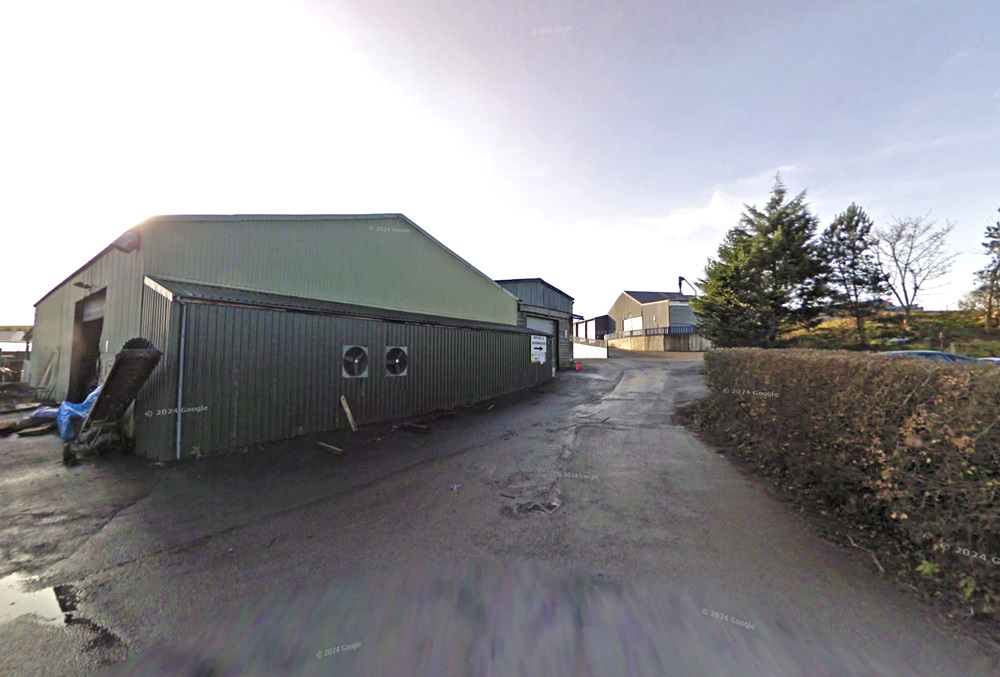Powys energy scheme backed by English council will be ‘UK’s biggest’

Mike Sheridan, local democracy reporter
An energy plant based in Wales but backed by Shropshire Council will be the biggest of its type in the UK, according to the facility’s existing operators.
This week, the council approved a planned joint public/private venture called “Biodynamic Carbon Ltd”, an investment vehicle which will be created to operate a green waste powered energy facility in Powys.
The move will see the authority take a 50% stake in the company, with Guilsfield firm Woodtek confirmed as the council’s private sector partner.
Guilsfield
Biodynamic Carbon Ltd was registered to a business address in Guilsfield in October, where capacity at an existing biochar plant operated by Woodtek under the name Carbon Hill is now set to be expanded by up to 400%.
This month, green energy firm Onnu said it would be creating “the UK’s largest biochar production facility” at the Guilsfield site, which converts green waste into a charcoal like substance used for soil enrichment and filtration using a process known as pyrolysis.
“This effectively upgrades the facility of Onnu’s partner, Carbon Hill, who will continue to be heavily involved in the operation of the plant,” said a spokesperson from Onnu.
“Green waste is a huge opportunity for local authorities and organic waste processors to transform low-value arboreal waste and compost oversize into a high-value carbon feedstock – and our new site will serve as a showcase for this.
“In the last 12 months huge volumes of biochar manufactured at the site has sold at very good prices, primarily to landscaping projects and we are now seeing a huge upsurge in interest from forestry and substrate markets
“However, the UK’s supply of biochar simply isn’t sufficient to meet growing demand – by building the UK’s largest pyrolysis facility, Onnu is making a significant contribution to closing that gap.”
Carbon Offset Removal Certificates
The council says its biochar project will also generate Carbon Offset Removal Certificates (CORCs) that certify the amount of carbon dioxide removed from the atmosphere by the biochar production process, which are bought by companies wishing to offset their carbon useage.
The authority estimates it will be able to sell around 8,000 tonnes worth of CORCs over five years on the open market.
Ian Nellins, Shropshire Council’s Cabinet member for climate change, environment and transport, said the scheme would be the first of it’s type in the country.
“The biochar project is an innovative and sustainable way to reduce net carbon emissions and create value from waste. It is a collaborative and cross-border initiative that supports local businesses and communities,” he said.
Shropshire Council expects to have the new facility up and running by August.
Support our Nation today
For the price of a cup of coffee a month you can help us create an independent, not-for-profit, national news service for the people of Wales, by the people of Wales.







And the benefit to Wales and Welsh people?
The same as when any other businesses opens a business in Wales, they pay rates to a Welsh council and employ people in Wales. Replace ‘council’ with ‘business’, which is what it effectively is, and people would see an English based firm investing in Wales as a good thing.
In any case, Shropshire is more like Powys than it’s neighbouring English counties, in practice you reach Wales before you cross the border, it’s our close friend as well as our neighbour, not some alien land.
Powys is gradually becoming part of England.